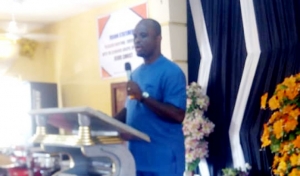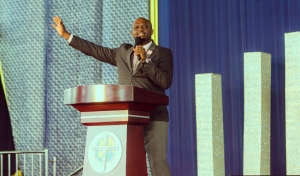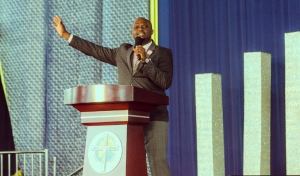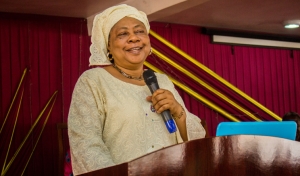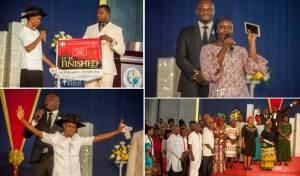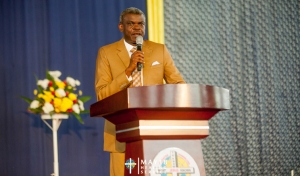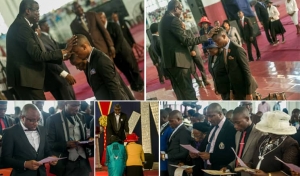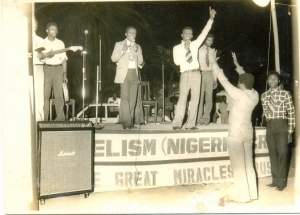
GEP
Curabitur ultrices commodo magna, ac semper risus molestie vestibulum. Aenean commodo nibh non dui adipiscing rhoncus.
The GEWC National Youth Conference, which comes up every three years was held this year in Rivers State, Port Harcourt at Model Girls’ Secondary School, Rumueme. It had its main theme as “Giving Ourselves to Prayer and the Ministry of the Word”. This year’s event marked the ninth of its kind and it was a four-day event that began from 9th to 12th August, 2018. The prestigious event attracted participants from all over Nigeria.
The conference uniquely featured a variety of Teachings, Talks, Seminars, Bible Studies, Power Night Prayers, Variety Night, Football Match and General Elections of new Officers of the National Fellowship.
Some of the key Guest ministers who featured were: the International Director of GEWC, Pastor Isaac V. Olori; the Chief Missions Coordinator, Evangelist Victor Ejimadu; the National Youth Minister, Evangelist Mike Ojie; Evangelist Prince Nkiri, Pastor Rufus Godwin, the Conference Chairman; Evangelist Lawrence Hart, Evangelist Goodman, Dr. Komi Gentle, Pastor Chidi Ozodo, Evangelist Messiah, Pastor Ivifiwol Lamech, Pastor Tunde Fowel, Dr. Daata Cookey, to mention but a few.
Dr. Komi Gentle did a book review on ‘Catch the fish and keep it alive’.
Evangelist Goodman took a seminar on entrepreneurship excepts from his teachings are:
Entrepreneurship is the process of designing, launching, running and assuming the risk of a business operation with the expectation of making profit. The people who create these businesses are called entrepreneurs.
Business: A venture established for providing a product or service to meet the demands of consumer.
It is important to point out that, there is a difference between an Entrepreneur and a Businessman. The key difference is that an Entrepreneur is a person who conceives a unique (new) idea or concept to start an enterprise and brings it into reality. He creates a new market while a Businessman, is someone who sets up a business with an existing idea, offering products and services to the customer. He creates place in existing market
Now, whether you desire to be an entrepreneur or businessman, it all starts from your mind. There is a saying that “the success or failure of any undertaking is primarily determined by what you think about it”. Meaning, your mindset is very important if you must succeed as an entrepreneur and excel in business. Your mind can paralyze or energize you. For this reason, it’s important we first deal with our minds.
One important thing to consider; What is your purpose in life? Why where you born? Someone once said, “Life is a tragedy if you were born and you do not know why”
As you work hard and labor, do not forget to watch out for the vultures. The business world has the dynamics of the jungle. There are those who live by hunting and killing, and there are vast numbers of creatures (hyenas, vultures) who live on the hunting of others. The hard work of others becomes their work and nourishment.
The Chinese have a saying ‘The best time to plant a tree was 20 years ago and the next best time is today. You and I may have wasted yesterday, may be wasting today but let us not waste tomorrow.
Evangelist Lawrence Hart taught on Leadership and Accountability excerpts from his teaching are:
According to Dee Hock, no matter how well designed an organization is, it is only as good as the people who live and work in it. What determines the organization’s performance is the approach to management its leaders take. In determining what makes a good leader, first look for integrity; second, motivation; third, capacity; fourth, understanding; fifth, knowledge; and lastly, experience.
Without integrity, motivation is dangerous; without motivation, capacity is impotent; without capacity, understanding is limited; without understanding, knowledge is meaningless; without knowledge, experience is blind. Experience is easy to provide and quickly put to good use by people with all the other qualities.
There are at least two different approaches to leadership. The most common is the idea of leading by dictate and power. The other, the example of Christ, is to lead by serving. One emphasizes measurable results, the other emphasizes people. One says "only the strong survive" the other says, "the strong have the most to give." One spotlights personal rights, the other emphasizes personal responsibility. One resorts to intimidation and power plays, the other works through love.
This is not just about leadership, it's about life. Every day we are asked to make decisions. Every day we must decide how to handle the various situations that come our way. In each decision we choose one of these two approaches, to do it God's way or the world's.
The Chairman of the conference, Pastor Rufus Godwin in his talk highlighted 6 things every young person in Christ should manifest (1 Timothy 4:12):
- Be careful of your words even in anger.
- Your conversation should be pure.
- Show love.
- Have and manifest faith.
- Manifest the spirit of God.
- Purity: be holy in all that you do.
The climax of the event was the last day when the International Director, Pastor Isaac V. Olori ministered on the topic: “Investing your Youthful Age”. He admonished the youths to develop and unleash their potentials (Jeremiah 1:4-10, 1 John 2:14). Excerpts from his teaching:
God expects great things from the youth as the youths are very precious to God. To get the right perspective of life you should see life through the word of God. God has a plan and purpose for your formation in the womb. Your ability to connect with what God wants you to be will bring out the real you and help you to fulfil your purpose and mission on earth. If you do not conform to the mould of Christ, you will conform to the mould of the world (1 Timothy 4:12, Joel 2: 18).
Do not despise your youth, do not look at yourself too little for God to use. Your condition today is not important, what matters is what God wants to make you. God knows that you are strong, do not belittle yourself and call yourself weak, do not look down on your capability (1 John 2:14).
Your youthful age is the most critical and essential part of your life (both for the world and for the Church) Do not mismanage your youth, invest on the right things that will add value to your life.
How you can get the best out of youthful age
- Let God do the sending, it is not in man to direct himself (Jeremiah 1:4).
- God has to be the commander-in-chief of your life, do not be in control of your life.
- Let God touch you, God can only touch you when you are ready. You will see a transformation in every area of your life. Invest in God’s word and prayers (Jeremiah 1:9).
- Take time to build your faith, protect it, cherish it, value it (Jude 20, 21).
Let your capacity increase, do not think small. Think big. Take charge, build and plant.
Pastor Isaac V. Olori inaugurated the newly elected executives of the National Youth Fellowship and blessed the youths afterwards.
The 2018 Missions Bootcamp organised by Evangelist Victor N. Ejimadu, the Chief Missions Coordinator of Greater Evangelism World Crusade and his team was held on 30th June, 2018 and 7th July 2018 in Rivers State and Bayelsa State respectively.
Evanglist Victor Ejimadu, Evangelist Mike Ojie the National Youth Minister, Church Pastors, Ministers and Elders were present. There was great moments of praise and worship, break out sessions on discipleship, Pastor Achese Amadi of Rainbow Town Church ministered on the topic “Pastoring the Community”, Evangelist Victor Ejimadu ministered on the topic “The Missional Supremacy of the Great Commission” and “the Holy Spirit”.
Evang. Victor Ejiamdu in his message (The Missional Supremacy of the Great Commission) said, Jesus began the Great Commission with the words, “All authority has been given to me in heaven and on earth” (Matthew 28:18-20). The issuance of this Commission is contextualized by the supreme authority of Jesus Christ in heaven and on earth. It comes from the highest possible authority. No authority can overrule it; no other authority can modify or change it. To fulfil the Great Commission is to obey the authority with which it was given and to fail to fulfil the Great Commission, intentionally (by disobedience) or unintentionally (by neglect) is to disobey the authority with which it was given. Clearly, this has serious significance for the Church!
The Great Commission has been historically and universally accepted as the most comprehensive statement in the Scriptures concerning the mission of the church. The question is, “Do you agree that it is?” Do you believe it is as relevant today as it was in the days in which He spoke it to the eleven?
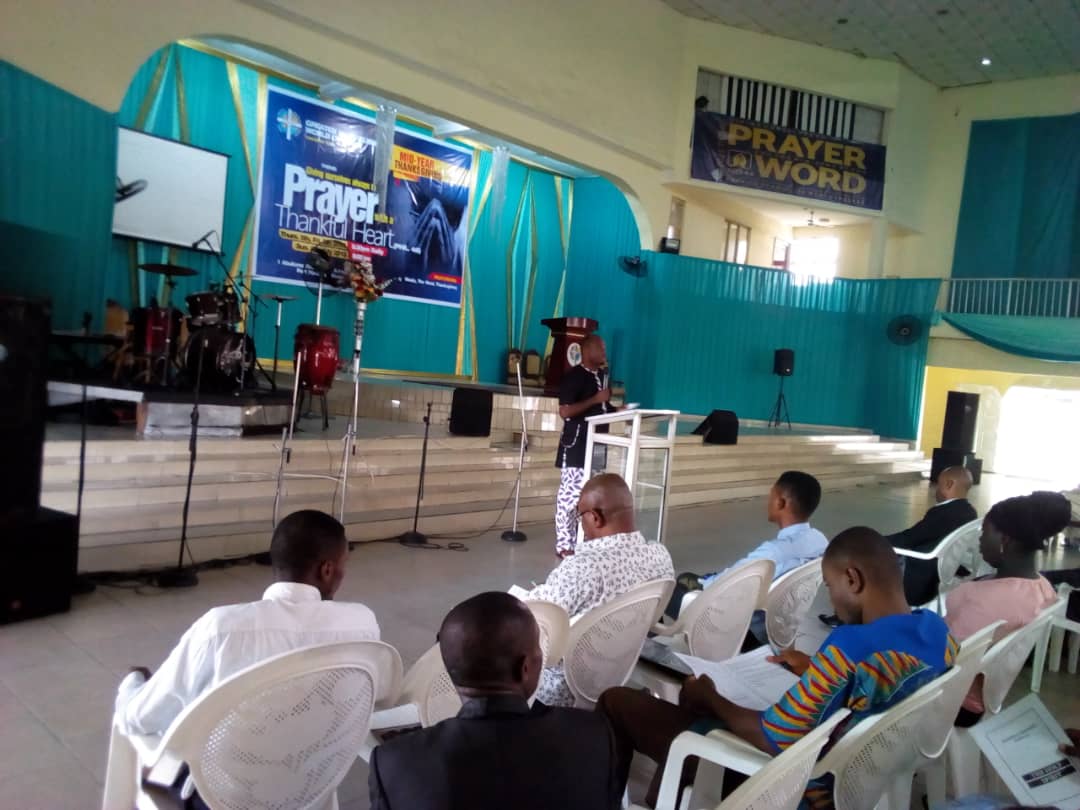
If we really believe the Great Commission is the highest mission given to the church by our Lord and Saviour and if we believe, it is not an option but a command, then, we must commit ourselves to know it, understand it, own it, preach it, live it and above all do it. Anything else dishonours it and the One who gave it.
“Any church that is not seriously involved in helping fulfil the Great Commission has forfeited its biblical right to exist.” (Oswald J. Smith).
The Missional Supremacy of the Great Commission means it is:
- The most important mission of the Church.
- The highest missional priority of the Church.
- The defining visionary statement of the Church.
- The supreme directive under which the Church exists and operates.
- The job description of every Christian.
The missional supremacy of the Great Commission means it is not another program, method, strategy, formula or idea to add to your ministry; it is what God is doing right now.
The Apostolic Nature of the Great Commission
Jesus gave the Great Commission “to the apostles whom He has chosen” (Acts 1:2); an Apostle is one who has been sent, a delegate, a messenger. The first command in the Great Commission is “GO” (Matthew 18:19), GO is an apostolic action. Apostles are those who not only go but those who go on a specific mission, Apostles are defined by their mission. The Great Commission is a mission! The word Commission means “the act of communicating or giving a charge; an authoritative order or direction; authority granted for a particular action or function”.
There are two distinctive threads in a commission that makes it more than a plan, idea, strategy or goal. These to threads elevate a commission in significance and power. They are its authority and its specificity (what it says and means).
As we have seen, the authority in which the great commission was given is the highest authority in heaven (the spiritual realm) and earth (the natural realm). When Jesus issued the Great Commission to His disciples He was sending them to complete the specific task of making disciples of all nations. This is an apostolic (missionary) work. While not all disciples are apostles, all disciples are called to participate in an apostolic work because all are sent to the nations in some way, even if they never go to another nation themselves.
We can understand the Great Commission like this:
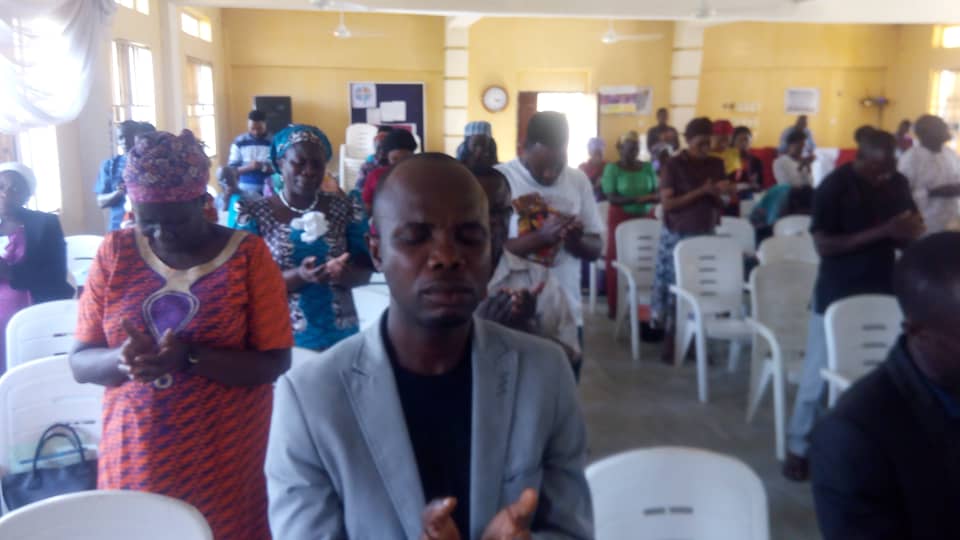
- Make Disciples: Make is a verb, the main action, a disciple is a follower. He is one who has dedicated his life to follow his master. To make disciples is to make followers of Christ.
- Go: It means bring people to Christ. “Go and make” not “come and see”. Go means that we are to do the work of evangelism. To make Disciples of Christ, we must bring that person to Christ to be forgiven and cleansed from his sins.
- Baptize: Bring them into the church. The Jewish communal context for baptism originally mean that it was required for conversion into the Jewish community. The word “baptize” tells us what we are to do after we have brought them to Jesus. Baptism brings them into the redemptive community of the Church. The implication is that the new believer can best follow Jesus as disciples from the context of their relationship with the church.
- Teach to observe: Bring them to spiritual maturity marked by obedience. We must bring disciples under the lordship of Christ. Jesus said we are to teach his disciples to “observe” (or obey) everything He has commanded us. However, the commands of Christ are not just rules to observe, they are a way of life.
GO + BAPTIZE + TEACH = MAKE DISCIPLES
We can translate this formula in the following way:
Evangelism (GO) +CHURCH (BAPTIZE) +OBEDIENCE (TEACH) = MAKE DISCIPLES
Four Areas Christians Have Not Made Disciples
- Christians have reduced discipleship to an academic process- a series of Bible lessons or curriculum to be studied and learned rather than a fully committed kingdom life in the Holy Spirit.
- As Christianity has become more institutionalized in its form, so also discipleship has become more institutionalised.
- Consumerism has become a leading social force of our day and is the opposite of sacrificial discipleship.
- Many Christians and Churches no longer experience the fullness of the Holy Spirit, reducing Him to the role of a theological assumption rather than an indwelling teacher.
The Power of Multiplication
If the population of China walked past you in a line single file, the line would never end because of the multiplying birth rate! Applying the power multiplication to discipleship, we can see the huge potential. If 1 person wins 1 soul per day for 1 year, we will have 365 disciples in a year. If each of those souls, win 1 soul per day for another year, we will have 730 disciples in 2 years. If this continues, in 10 years, just 1 person would have directly or indirectly won 3,650 souls for Christ. “He who does the work is not as profitable as he who multiplies the doers.” (John R. Mott)
It is clear that God has given us one thing to do – to make disciples of all the nations. My job is to make disciples! Your job is to make disciples! Our job is to make disciples! In Matthew 24:14, Jesus told His disciples “the end will come” when the Great Commission has been accomplished.
Lives were blessed as the Holy Spirit touched the people, individuals were enlightened and spurred for the evangelistic work.
During this service, we heard very outstanding testimonies of God’s faithfulness from two of our brethren, Bro Biobele and Pastor Samuel.
Bro Biobele testified how God delivered his son from death as a result of stray bullet that pierced through his skull. He recounted how they (he and his son) had gone to the market last year to purchase some items and while doing so his son screamed “my head! My head! And later collapsed. He was immediately rushed to Braithwaite Memorial Hospital (BMH) where he was revived. According to Bro Biobele, “the doctor prescribed lots of drugs for us, which I hadn’t money to purchase but God miraculously favoured me before the pharmacist who gave me the drugs I needed for my son with the little money (N450) I had. We were later referred to University of Port Harcourt Teaching Hospital (UPTH) for further treatment and diagnosis. At University of Port Harcourt Teaching Hospital (UPTH) we were told to go for an x-ray, which we did, and the x-ray revealed that a bullet had pierced through my son’s skull but didn’t touch his brain. According to the Doctor, the bullet had settled in a safe place. To the glory of God, it’s been one year since that incidence and my son is still alive”.
Pastor Samuel and his wife testified how God restored their landed property and delivered them from a possible fire accident that would have occurred as a result of putting fuel into the stove instead of kerosene. Pastor Samuel recounted how after the sermon in the March Healing service, he was inspired in his spirit to reclaim his property. He narrated how he had bought a land but could not sign the agreement papers due to the death of the land owner. According to Pastor Samuel, “The Daughter of the landlord refused to allow us into the land. I brought the case to the notice of the Police, but she continued to encroach into our property. During the service in March, I prayed earnestly and declared possession of my land, and to the glory of God, we have our land back and we have started farming without any disturbance. Also, our second testimony recounts God’s deliverance from fire outbreak. My wife purchased kerosene for cooking, unknown to her that the seller gave her fuel. She poured it into the stove and began using it to cook. In a short while, the kerosene seller ran into our house and called out to my wife that it was fuel and not kerosene. God helped us and we put off the stove without any outbreak. thanks to God”.
This month’s service marked our 37th anniversary for the healing service. The power of God was so mighty in service that it was evident through the salvation of many, healing and deliverances.
God’s word was brought to us through His servant, Evangelist Victor N. Ejimadu, the Chief Missions Coordinator of the Ministry. The title of the sermon was Healing Service: A convocation of miracles. The main text for the sermon was taken from Jeremiah 32:17-29 and Isaiah 45:19.
Introducing his topic, he gave a brief history of how the healing service began. He stated that God gave our founding father, Apostle G.D Numbere an instruction 37 years ago to start the healing service, and since then, God has proved Himself mighty during these services over the years. He defined Miracle to mean an event which is unexplainable. He also said that an occurrence of a miraculous event is often undeniable, and aims to glorify God and not gain human attention or popularity, hence, any miracle that does not bring glory to Jesus Christ is not of God.
Highlights of the sermon include the following:
1. Phrases used to represent Miracle:
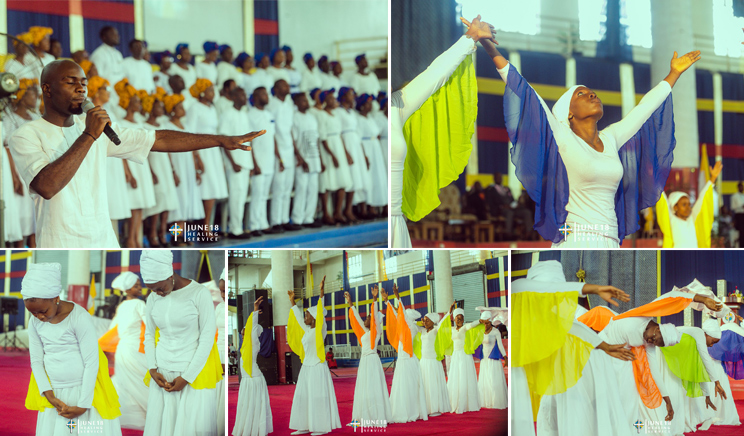
a. Signs: Meaning an evidence of divine commission and attestation of divine message(Matthew 16:1-4).
b. Wonders: Meaning an event that produces astonishment to the beholder.
c. Mighty works: “Dunamis” (Romans 15:19).
d. Works of God
2. Characteristics of Miracles
a. Miracles speak for themselves: An example of this is in John 9 where Jesus opened the eyes of the blind man. The conspicuous nature of such miracle does not require anyone to defend the fact that it happened, because it speaks for itself.
b. Miracles are unexplainable: God’s miracles are often beyond human explanations. If we can explain why and how it happened then it is not a miracle.
c. Miracles are often undeniable.
d. Miracles authenticate and validate the Gospel.
e. Miracles confirm the calling and message of God.
f. Miracle is an act of grace (John 9:35).
g. Miracles bring God’s love and mercy to humans. However, we need to reciprocate same by surrendering our lives to Him (Matt. 11:28-29).
h. Miracles bring Joy
i. Miracles can be connected to individuals, families, communities, nations, etc.
j. Miracles are done through His vessels (flesh and blood) - Acts 10:3.
k. Miracles can happen as a result of answers to prayers (Gen. 18:42-45, James 5:17-18).
l. Miracles come by the power of the Word.
m. Miracles happen when we worship and praise God sincerely from our hearts (Ps. 22:3). When God appears, anything can happen, e.g “Paul and Silas”.
n. Miracles follow when we go out for missions.
o. Miracles happen when we exercise faith in God (Mk 11:22-23).
p. Miracles happen in the name of Jesus (Phil 2:9). Every challenge we experience has a name and such must bow to the higher name (Jesus).
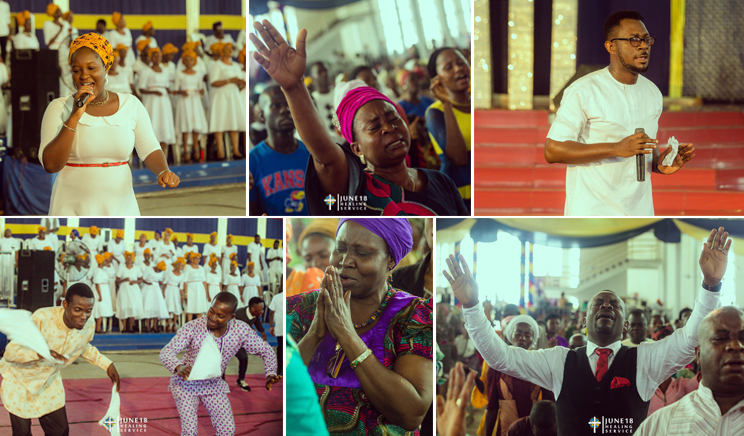
Other points worthy of note include;
1. God can use anybody or anything to perform miracle at any time, but that does not necessarily authenticate the salvation of the miracle performer (John 9:35).
2. There are satanic and counterfeit miracles, the essence of which are to get monetary rewards. For example, the practice of mandatory sowing of seed. Miracles should be free. The beneficiary does not need to make compulsory payment in return.
3. Miracles of riches are for reaching out. Anytime God brings a miracle, He requires a corresponding response towards His work.
4. We must not be afraid of what the enemy wishes to do because God’s mighty hand is well able to deliver us (Luke.1:74-75).
5. There is no level you have got into in sin that God cannot reach-out to you.
In John 4:1-20, the woman in question was completely lost in sins, but her encounter with Jesus changed her story and she became born-again. She gave up her immoral life and became an Evangelist for God. In conclusion, God is able to do exceedingly abundantly of all that we could ask or imagine (Ephesians 3:20). It is our capacity to receive miracles but it is in God’s ability to release same as much as needful. Also, the most important miracle any man can have is the salvation of his soul, hence we all must strive for this great miracle.
The Hospital and Prison Visitation ministry held their annual conference from Friday 25th May 2018 to Saturday 26th May 2018 at GEWC Mile 1 Church, Port Harcourt. The conference covered talks on, the consequences of Neglecting Hospital and Prison Ministry by Pastor Ibim Alabraba; The Importance of Hospital and Prison Visitation to the Church by Pastor Ledum Vite; Effective Hospital and Prison Ministry Visitation by Pastor Dr. Nonyem E. Numbere. There was also a book review on Catch the Fish and Keep it alive.
Pastor Dr. Nonyem E. Numbere as part of the introduction into her talk on Effective Hospitals and Prisons Ministry Visitation, said the hospitals and prisons ministry consists of two ministries or departments in the Church that should ideally be independent bodies because of the vast scope. Both belong to the ministry of helps but each to a specialized group of people. More details from her talk can be found below.

Hospital and Prison Ministry (HOSPRIM) is a care giving ministry, others may say “We won’t serve at tables, we will give ourselves to the ministry of prayer and the Word” (Acts 6:4), but the HOSPRIM cannot say that. She is to care for the physical as well as the spiritual. It is a ministry of help, mercy and service to a special group of people namely: those who are sick and are in hospitals and those that are in prisons including police detention cells (Romans 12:7-8; 1 Corinthians 12:28).
Such people are often lonely, depressed and therefore need love, compassion and care. People in prison are there because they committed a crime (although there are some case of wrongful imprisonment) but people are sick not necessarily because they have done anything wrong. Ministering to both groups brings light, hope, deliverance and recovery to them. No ministry or church is complete without this department.
The Importance Hospital and Prison Ministry (HOSPRIM)
HOSPRIM is a ministry that is predicated on love and compassion. It is a way of showing love to others thus fulfilling the second part of the summary of God’s commandments as given by Jesus Christ Himself (Matthew 19:19; 22:37-39; Mark 12:31).
To buttress His point, He told the parable of the good Samaritan (Luke 10:30-37). Today, the phrase, “good Samaritan,” is used to describe someone who is good to stranger. Apostle James refers to it as “the royal law” (James 2:8)
It is a means by which believers fulfil the Great Commission to make disciples by working in a specialized category (See catch the fish and keep it alive page 19). It is therefore a tool for church growth.
How to Have an Effective Hospital and Prison Ministry
- Have a burden and give yourself to prayer and the ministry of the word of God. You need divine guidance and assistance.
- You must be fully committed to this ministry and make out time for it. This work is for people who have a compassionate heart and have the gift of help and service as mentioned above.
- Have a focus through the Vision and Mission Statements of GEWC and this department because “where there is no vision, the people perish” (Proverbs 29:18; Hosea 4:6). Vision and mission statements answer basic questions such as, “Who are we?”, “What do we value?”, “Where are we going?” Generally, organizations that have clearly defined vision and mission statements that are aligned with strategic plans perform better than those who do not.

What is a Vision Statement?
- This is a brief sentence encompassing all you want to achieve as an organization and comes first before the mission statement. It addresses the future as to what the organization wants to achieve over time. It answers the questions
- who are we or when we were established.
- Where are we headed i.e. where do we aim to be?
- It is meant to inspire or motivate members of an organization and also clearly demonstrates its goals in alignment with its organizational values and culture.
- It helps a group to
- acknowledge their past i.e. who they were when established
- identify their present i.e. who they are now
- Prepare for the future i.e. who they want to be in the next few years
- Encourages a people to focus on what is important and to better understand organizational changes and alignment of resources even when there is a change of leadership
- Guides the members to put in their best.
- Guides the mission statement and the rest of the strategic plans.
What is a Mission Statement?
The mission statement describes the purpose of the organization or group – what they do and how to get to where they want to be i.e. how to achieve their vision. While the vision statement addresses the future, the mission statement talks about the present leading to the future.
- The mission statement is what puts the feet to the vision of a church/ministry and gives it a sense of purpose and provides the motivation to quickly and clearly move the vision forward.
- It addresses four essential questions
- What do we do?
- How do we do it or how do we get there?
- What values are we bringing?

- It lists the broad goals for which an organization is formed at the same time, clearly stating its purpose, main objectives and values.
- It consists of an internal mission and an external mission. The internal mission is for the members and the external mission is the effect of the group outside itself.
- Measures the organization’s success
- Outlines the benefits of the organization.
- Have a plan as to how to carry out your mission. The bible enjoins us to make plans (Proverbs 20:18). From the modern translations you can see that counsel means consultation, deliberation, plan. Jesus Christ Himself also talked about planning (Luke 14:28-32).
Planning is basically nothing more than attempting to decide in advance what we will or will not do in the next minute, hour, days, months or years. It is an arrow that points to the future as to what we want to achieve and therefore help us to affect the future with a purpose.
Planning should begin in time because it takes time. Do not rush into programs e.g. your planning for next year’s program should not start in October this year. You should not start later than April to give room for consultations, deliberations and prayers.
Frequent reviews of your achievements are necessary in order to know whether your plans are effective. Do not hesitate to change plans and strategy where necessary.
- Recruit volunteers especially young ones by being very vocal about the importance of HOSPRIM. Many of our people are not interested because you have not been pressing enough. Also pray about it (Luke 10:1-2).
- Training is very important. Jesus spent three years training his disciples so that when He left, there were people whom the Holy Ghost would use to carry on with the work. Adopt the technique called “Training the trainer” in order to be effective down to the grassroots. HOSPRIM should be in every local church of GEWC, not just in a few churches so they can reach every hospital, police cell and prison in the vicinity of our churches. Develop a work manual using “Catch the fish and keep it alive” and teachings peculiar to hospitals or prisons visitations.
- Have faith in God and trust Him for provisions to carry out this mission and expect a bountiful harvest, no matter the difficulties that may come your way.
To wrap it up, Pastor Dr. N. E. Numbere inaugurated the National Officers and Zonal Coordinators of the Hospitals and Prisons Ministry and prayed for everyone present.
27th May is marked as Children’s day celebration in Nigeria. It is a time to celebrate children and the Church was not left behind in this celebration. We thanked God for the gift of children and the blessings they bring to our lives.There were parades, singing, dancing and recitations by the children to celebrate this occasion. We celebrate our children as they are heritage of the Lord: and the fruit of the womb is His reward (Psalm 127:3).
As usual, we heard testimonies from some of our brethren of God’s goodness. One of such persons was Sis Mary of Bori zone 1 who testified how God healed her during the Easter retreat. She recounted how for thirty-two years she had been experiencing pains from her head down to her legs despite several medications and treatments. When she got home however, she struggled with immense pain to pass out urine. In course of doing that a big stone came out of her and she became well again.
Another person who testified was Sis. Abigail. She gave an interesting testimony of how she got back her phone after it was stolen in church. April healing service, was her first time at Greater Evangelism headquarters and as a first timer, she had stepped out to be welcomed with the others. She left her phone on her seat, only to realize later when she returned that it had been stolen. She called the phone and was warned by the thief never to call the phone again. Feeling sad, she spoke to a Pastor who promised to get her a new phone. However, the next day, her neighbor told her the thief had been calling in desperation to return the phone, confessing that whenever she tried using it, it felt as though she was being burnt with fire. They made contact and the phone was returned to its rightful owner.
The final testimony was from the brethren of Town church 1. They thanked God who delivered them from a ghastly auto crash, after the last healing service that would have claimed the lives of all who entered the bus they took to church.
The presence of God was mighty in service this month. God’s word was brought forth though the International Director, Pastor Isaac Olori. The topic of the sermon was “Be still and know that I am God” (Psalms 46:10). He pointed out that the “I am that I am” was the One speaking here and this understanding gives credence and authority to His words. Excerpts from his sermon can be found below.
Three (3) things God Addressed
- God is addressing His children, particularly those facing one challenge or the other.
- Those who are not his children. Everyone is God’s creation, but not everyone is a child of God. Only those who have accepted Him are His children (John 1:12). The moment you realize that you cannot struggle with God, and accept Him, you become His child e.g. Saul.
- Circumstances, powers and forces warring against the children of God. When God says “be still” it means He is about to manifest Himself.
What does it mean to “Be Still”
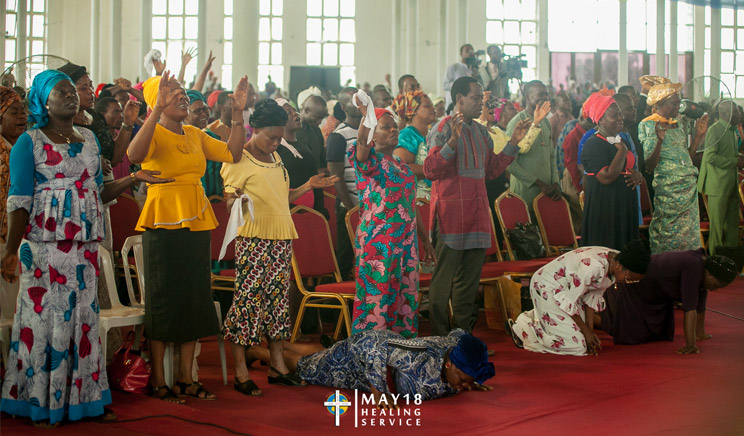
- “Be still” has its origin in Hebrew – “Rapha” meaning to be weak/to relax/a state of lacking power. One of the things we must note is that God will not take over your battle until you cease fighting and recognize that you are limited while God is unlimited and infinite. God does not help the strong, he helps the weak. To be weak in this context means to call upon God and tell Him to help you and that you need His intervention (2 Corinthians 12:9-10). Sometimes people come to God as an option, but if you want God to identify you for a miracle, you must come to Him as the only option.
- “Be still” means to be calm, a state of tranquility, freedom from storm. A boat needs water to sail, but if that same water gets into the boat, it will sink it. Do not allow the turbulence to affect your inside. Your mind and spirit must be free from agitation and worry by casting your cares on Jesus (1 Peter 5:7). Many are going down spiritually because they have accumulated so much are within. Learn to cast your cares on the Lord.
- “Be still” means to surrender and submit to God even in our situation, acknowledging the fact that He is still in control. God never loses control. He rules over every situation and determines what happen. We must thus free ourselves from anxiety and worry and rely on God.
Why We Need To Be Still
- Deuteronomy 4:7; Psalm 145:18; Psalm 34:18. When you have a covenant with the Lord, there is a covering over you. The strong are not easily broken. If God is near you, no matter the trouble that comes, you must overcome. Part of the principle of faith is being still and trusting God for the impossible.
- God is our refuge and strength and we can access Him; He is available. Refuge talks about protection, shelter, where we turn for safety when situations are trying to overwhelm us.
How God’s Abundant Mercy Can Come
- Psalm 18:12-19. When God wants to fight, He fights an unconventional war. God manifests Himself when you come to Him and ask for help.
- Isaiah 55:7. If God will abundantly pardon the wicked, then He will abundantly show us mercy (Psalm 46:2).
In conclusion, he said, when you get to a point where you do not have enough, that is the point you should surrender. For God’s people, being still means looking to the Lord for help in great difficulties. Most of the time, the challenge is the turbulence, and as a result we tend to forget God.
Know that God is God. To know who God is, you must have a relationship with Him. When you give yourself to prayer and the study of the word, it will strengthen you and you will hear God say, “Be still; for I am God”. God will bring glory to Himself through our circumstances. It becomes a raw material in God’s hands and He visits to turn your situation around.
Finally, the Lord cannot be with you, if you are not born again. When we come into a covenant relationship with God, nothing will be impossible.
It was a joyous occasion as another batch of Ministers and Elders were ordained in Greater Evangelism World Crusade. A total of 164 Ministers and 243 Elders were successful out of about 500 candidates who had gone through the rigorous exercise of training (CUSOM), written and oral exams. Family and friends of candidates turned out in mass to witness this occasion.

Pastor Isaac Olori before ordaining each of them, gave the Ordination charge titled “The Ministerial Calling” (Hebrews 5:1 – 4; 1 Thessalonians 2:1 – 4). Below are excerpts from his sermon.
Our Christian life is first a calling to devote our life and service to God. The Ministerial Calling is then, a higher calling. It is a call to total dedication of our life, body, soul and resources to God’s service. It is beyond a title, it is rather responsibility and duty. Accepting to be ordained is saying “I am devoting my soul, body, time, energy and resources for God’s Service”.
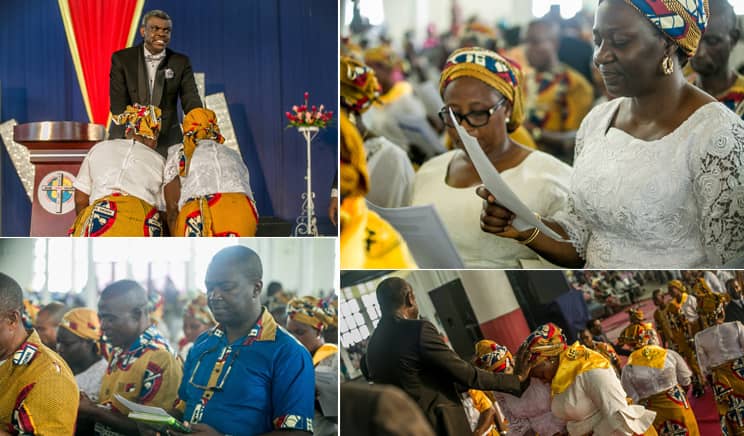
Nature of the Calling (Hebrews 5:1 – 4)
- The calling is a High Calling: The standard of ministry remains the same. Do not be tempted to follow other ministers who have watered down God’s standard. Let your life be an example of the minister.
- You are taken from among men (Acts 14:15): The minister must remember that he is first a man, a brother or a sister. Do not be bloated with the title of your office. Do not treat the office like something you earned, it is only by grace so be humble.
- Appointed for men: Always remember that you are appointed to serve men. You were not appointed for people to serve you. You are a gift to the Church (Ephesians 4:8). Gifts do not serve themselves neither do they exist to be served. Ministering to men is one of the crucial responsibilities of ministers. Part of your judgement by God will be on how you served men.
- Your responsibility after ordination is primarily spiritual before physical (1 Corinthians 4:1). Be a manager of spiritual and divine truths and deliver it to people.
- Your sacrifice is prayer, worship, time and money (Hebrews 5:2). You must imbibe the character of compassion for those who are ignorant and going astray. Compassion is the force that will propel you to go out of your way to do things for your people. Stand in the gap for your people and pray with the heart of compassion. You are being empowered to be an agent of compassion.
- You are subject to weakness (Hebrews 5:3). Ordination does not make you a super human overnight therefore, your personal devotion must not be neglected. As you call others to devotion, do not lose your devotion because if you do, you have nothing to offer. Never allow your being busy for God to rob you of your time with God.

Focus on Results
- Produce fruits (2 Thessalonians 2:1). There should be evidence of positive impact on people’s lives. Results do not just happen, it takes determined effort and focus. Results come with a price.
- The calling carries both burden and sacrifice. The calling most times demands great sacrifice and suffering. You are therefore entering the ministry of burden bearing. When you serve, honor will come but the pathway is burden and shame (1 Thessalonians 2:2)
- Beware of Apostasy (1 Thessalonians 2:3). Out there are so messages that might be popular but not founded on the truth (2 Timothy 1:13, Titus 1:13). There is sound word and sound faith. Sound faith is a product of sound teachings/word. Fight ungodliness. Beware of the ministry of uncleanliness and deceit. As a minister, you should be ready to stand against false teachings and doctrines of devils.

- Seek God’s approval (2 Thessalonians 2:4). There are times men might approve you but God might disapprove. Always seek God’s approval.
- Ministry is a trust (2 Thessalonians 2:4). The gospel is being put into your hands to protect the gospel. It is a sacred trust and every trust calls for faithfulness and accountability (1 Corinthians 4:1,2)
- God tries or tests our heart (2 Thessalonians 2:4). Be conscious of the fact, not only our works will be tried but our hearts too (2 Chronicles 25:2)
In conclusion, reading 2 Timothy 2:2, Pastor Isaac Olori prayed that the grace of ordination should flow and affect the lives of all candidates who will be qualified, can be entrusted with the gospel and also raise “Timothys”. He charged them to go and make disciples.
After the charge, the ordination procedure began with the administration of pledges, ordination and presentation of ordination certificates to the newly ordained ministers and elders.
This month in history, a sinner was miraculously saved by grace and it set in motion, the mustard seed that would grow into a great commission called Greater Evangelism World Crusade.
Once I was blind, but now I can see
Once I was bound, but now I am free
That's how I know there's a Savior for me
Oh, such a Savior!
The above song, one of Apostle Geoffrey Dabibi Numbere’s (Founding Father, GEWC) favorites, is a summary of what God did in his life on Sunday 11th May 1969. That unforgettable Sunday, 11th May, 1969 was like any other Sunday. Geoffrey Dabibi Numbere, a second year Geology student in the University of Ife, Ibadan Campus, was like any other young student on Campus. He was completely and totally oblivious that God had His eye on him and that even the names he bore were like a stamp on him on his future.
He became miraculously born again on the 11th of May 1969 after a sermon by Rev. Mike Oye the then Traveling Secretary of Scripture Union, who had been invited to preach in the chapel that Sunday through the instrumentality of the President of the campus’ Christian Union, Philip Olurinola, (then Ogunrinola).
Apostle G. D. Numbere, while on earth, never celebrated his natural birthday rather, he celebrated 11th of May which was the day he became born again.
We celebrate the power of God to save a man. We celebrate God’s mercy and pardon that was multiplied to him and through him, thousands have been saved.
(See more in A Man and A Vision (A Biography of Apostle Numbere). Written by Pastor Dr. N. E. Numbere)


.JPG)
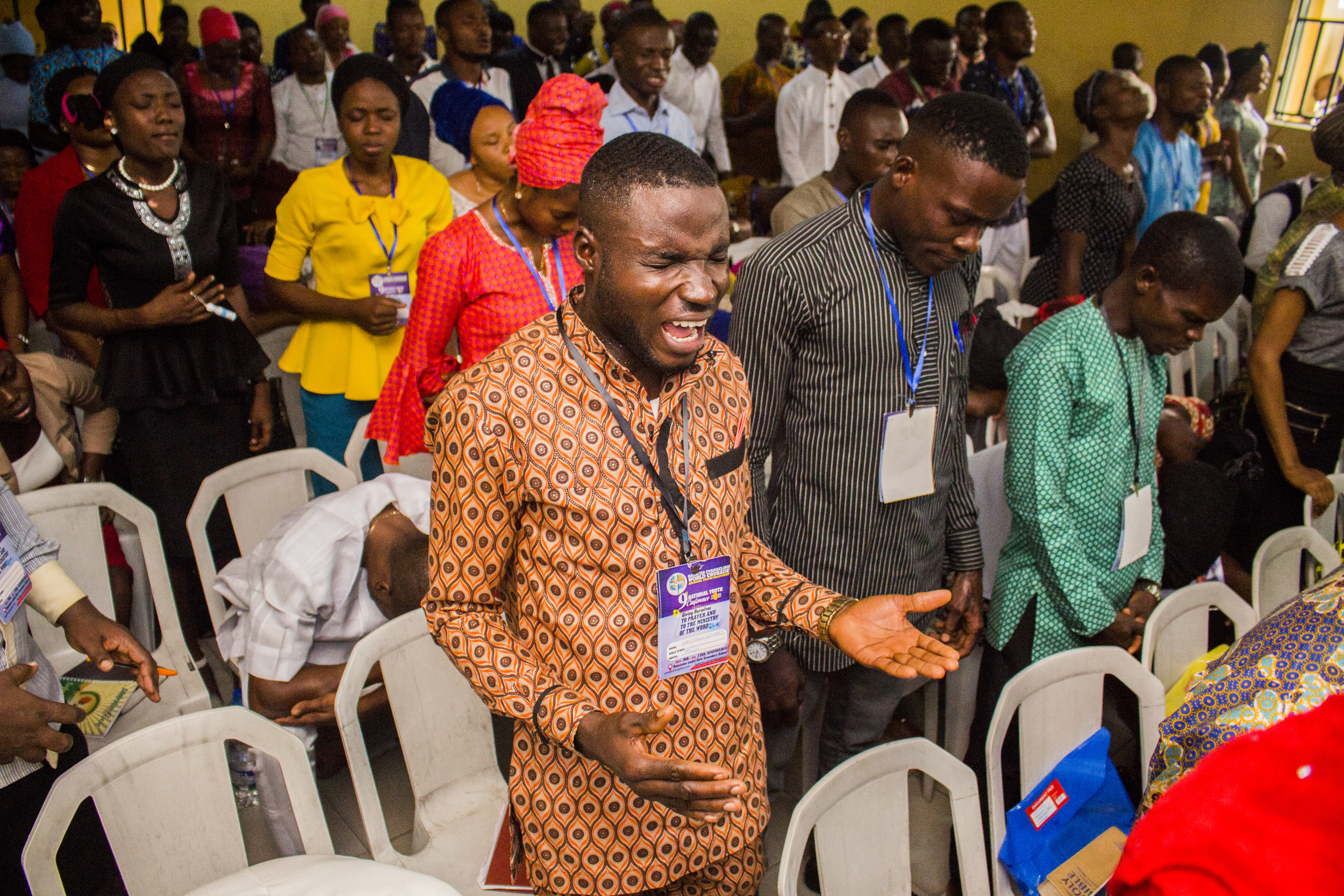
.JPG)
